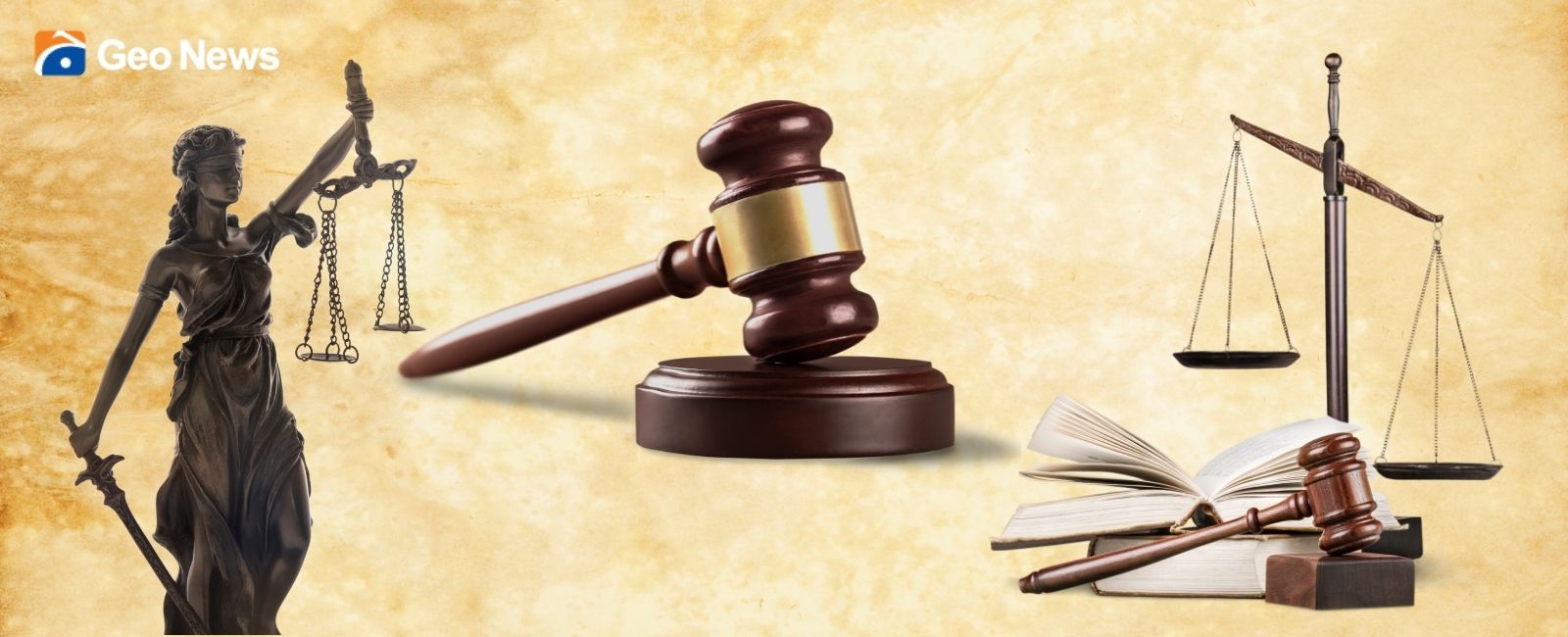Five court judgments that shaped 2021
The year 2021 witnessed historic court rulings — some ensured rights, some shook the country, and some quickly became controversial
By Web Desk

The year 2021 witnessed a flurry of court rulings that were historic in the rights they ensured to women and minorities. There were also verdicts that shook the country for their political implications, while some quickly became controversial.
Geo.tv has compiled a list of court judgments which we will be talking about in 2022 as well:
The case of the visually-impaired teacher
In November, the Lahore High Court ruled that a visually-impaired candidate cannot be discriminated against on the ground of disability. The young man, Muhammad Kamran Jamil, was denied employment as an educator by the Punjab government due to his disability.
"[...] if Louis Braille, who was blinded at the age of three as a result of an accident in his short life time (1809-1852), began developing a system of tactile code that could allow blind people to read and write quickly, why the state in 2021, which is the era of modern technology, cannot facilitate the visually impaired persons?" the LHC asked in its judgment.
The author of the verdict, Justice Sohail Nasir observed, while dismissing the appeal of Punjab education department, that " the state cannot deviate from its fundamental duty to do at every level what it can, for grooming and promoting the persons with disabilities”.
Bringing down the Nasla Tower
In June, the Supreme Court of Pakistan ordered authorities to raze to the ground the 15-storey-high Nasla Tower in Karachi, for being built on encroached land meant for a service road.
The court told the builders to refund buyers of the residential and commercial units within three months, and directed the city’s commissioner to have the Tower vacated within a month.
Soon after, residents of the building, who were ordered to vacate their homes, and members of the builders association, gathered outside the Tower to protest its demolition.
Also, this month, a 65-year-old woman, who was a former resident of the building, died due to depression, said the Association of Builders and Developers.
Demolition work on the building is underway.
No more two-finger test
Earlier this year, in what was a historic moment, a single-bench of the Lahore High Court, led by Justice Ayesha A. Malik, directed that the two-finger and hymen test have no medical basis or forensic value in cases of sexual violence.
The judge declared that virginity tests “offend the personal dignity of the female victim and therefore is against the right to life and right to dignity enshrined in Article 9 and 14 of the Constitution”.
The Court termed the tests "discriminatory against female victims as they are carried out on the basis of their gender, therefore, violating Article 25 (equality of citizens) of the Constitution".
Restoring the temple
In January, the Supreme Court directed the Khyber Pakhtunkhwa government to rebuild a vandalised Hindu temple in Karak by recovering the amount from Maulvi Sharif, one of the prime suspects behind the attack.
A three-member bench headed by the Chief Justice had taken suo motu notice of the angry mob that had ransacked and set ablaze the century-old shrine in December 2020.
The bench also ordered authorities to remove encroachments and illegal construction on temple and gurdwara lands.
Secret ballot to remain secret
The Supreme Court in March ruled that polling for Senate elections is held under the Constitution and thus cannot be done through an open ballot, despite the ruling Pakistan Tehreek-e-Insaaf pushing for polling for the upper house to be held by open ballot.
But the Court also held that the secrecy of the ballot is not "absolute", adding that “it is the duty of the Election Commission of Pakistan in terms of Article 218(3) of the Constitution, to ensure that the election is conducted honestly, justly, fairly and in accordance with law and that corrupt practices are guarded against”.


